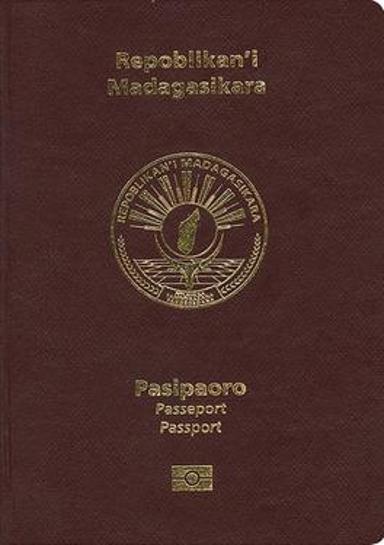
 Madagascar
Madagascar
 Madagascar
Madagascar


























 Albania
Albania Australia
Australia Bahamas
Bahamas Bahrain
Bahrain Bhutan
Bhutan Botswana
Botswana Burkina Faso
Burkina Faso Cameroon
Cameroon Colombia
Colombia DR Congo
DR Congo Ivory Coast
Ivory Coast Equatorial Guinea
Equatorial Guinea Gabon
Gabon Georgia
Georgia Guinea
Guinea India
India Indonesia
Indonesia Iraq
Iraq Kazakhstan
Kazakhstan Kenya
Kenya Kyrgyzstan
Kyrgyzstan Libya
Libya Moldova
Moldova Mongolia
Mongolia Oman
Oman Pakistan
Pakistan Papua New Guinea
Papua New Guinea Qatar
Qatar Saint Kitts and Nevis
Saint Kitts and Nevis Sao Tome and Principe
Sao Tome and Principe Sierra Leone
Sierra Leone South Korea
South Korea South Sudan
South Sudan Syria
Syria Tajikistan
Tajikistan Togo
Togo United Arab Emirates
United Arab Emirates Vietnam
Vietnam Afghanistan
Afghanistan Algeria
Algeria Andorra
Andorra Argentina
Argentina Armenia
Armenia Austria
Austria Azerbaijan
Azerbaijan Belarus
Belarus Belgium
Belgium Belize
Belize Bosnia and Herzegovina
Bosnia and Herzegovina Brazil
Brazil Brunei
Brunei Bulgaria
Bulgaria Canada
Canada Central African Republic
Central African Republic Chad
Chad Chile
Chile China
China Congo
Congo Costa Rica
Costa Rica Croatia
Croatia Cuba
Cuba Cyprus
Cyprus Czech Republic
Czech Republic Denmark
Denmark Dominican Republic
Dominican Republic Egypt
Egypt Eritrea
Eritrea Estonia
Estonia Fiji
Fiji Finland
Finland France
France Germany
Germany Greece
Greece Grenada
Grenada Guyana
Guyana Hungary
Hungary Iceland
Iceland Ireland
Ireland Israel
Israel Italy
Italy Jamaica
Jamaica Japan
Japan Jordan
Jordan Kiribati
Kiribati Kosovo
Kosovo Kuwait
Kuwait Latvia
Latvia Lebanon
Lebanon Liberia
Liberia Liechtenstein
Liechtenstein Lithuania
Lithuania Luxembourg
Luxembourg Mali
Mali Malta
Malta Marshall Islands
Marshall Islands Mexico
Mexico Monaco
Monaco Montenegro
Montenegro Morocco
Morocco Myanmar
Myanmar Nauru
Nauru Netherlands
Netherlands New Zealand
New Zealand Niger
Niger North Korea
North Korea North Macedonia
North Macedonia Norway
Norway Palestine
Palestine Paraguay
Paraguay Peru
Peru Poland
Poland Portugal
Portugal Romania
Romania Russia
Russia San Marino
San Marino Saudi Arabia
Saudi Arabia Serbia
Serbia Slovakia
Slovakia Slovenia
Slovenia Solomon Islands
Solomon Islands Somalia
Somalia Spain
Spain Sudan
Sudan Suriname
Suriname Sweden
Sweden Switzerland
Switzerland Taiwan
Taiwan Thailand
Thailand Tonga
Tonga Trinidad and Tobago
Trinidad and Tobago Tunisia
Tunisia Turkey
Turkey Turkmenistan
Turkmenistan Ukraine
Ukraine United Kingdom
United Kingdom United States
United States Uruguay
Uruguay Uzbekistan
Uzbekistan Vanuatu
Vanuatu Vatican
Vatican Venezuela
Venezuela Yemen
YemenMadagascar, the fourth largest island in the world, is located in the Indian Ocean off the southeastern coast of Africa. The country is home to around 27 million people and is known for its rich biodiversity, with many of its plant and animal species found nowhere else on earth. The climate varies from tropical along the coast to temperate inland and arid in the south, providing a wide range of ecosystems.
The culture of Madagascar is an eclectic mix of Malayo-Indonesian, African, Arab, and French influences. Malagasy and French are the official languages, with traditional Malagasy music and dance playing a significant role in the daily lives of the people. The island is famous for its unique funeral traditions, including the “famadihana” or “turning of the bones” ceremony.
Madagascar’s economy is largely based on agriculture, including fishing and forestry, with coffee, vanilla, and cloves among the main exports. However, the country faces significant challenges, including political instability, inadequate infrastructure, and a high rate of poverty. Despite these challenges, Madagascar’s unique wildlife, stunning landscapes, and vibrant culture make it a fascinating destination. The Madagascar passport allows citizens to travel internationally, serving as a key symbol of national identity.